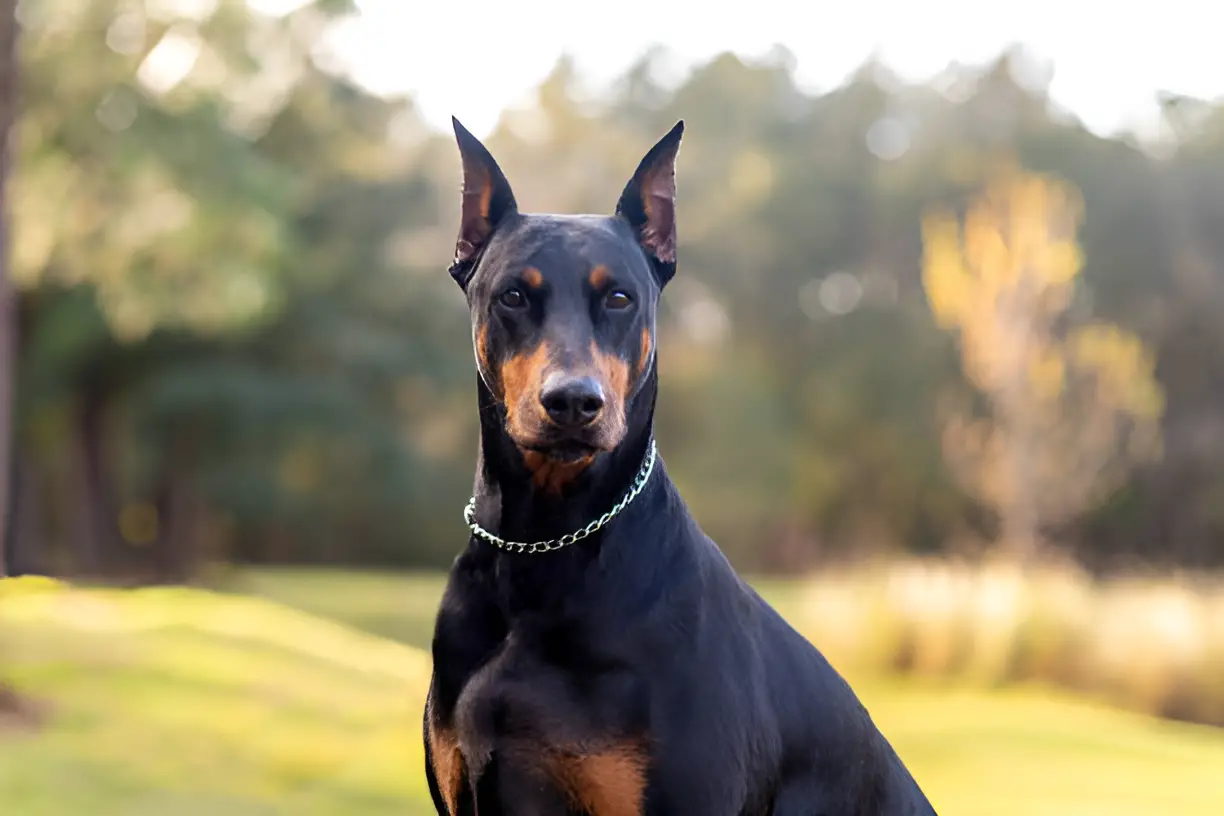No, Dobermans do not have lock jaw; this is a myth with no scientific basis. The notion that Dobermans, or any dog breed, possess a “locking jaw” mechanism is a widespread misconception. This comprehensive guide will explore the origins of this myth, the anatomy of a Doberman’s jaw, and the truth about their bite strength and behavior. By understanding these aspects, we can better appreciate the breed and dispel any unfounded fears.
Understanding the Myth of Lock Jaw
The myth of lock jaw in Dobermans likely stems from their powerful bite and protective nature. Here are some key points to understand this misconception:
Origins of the Myth: The idea that Dobermans have a locking jaw may have originated from their history as guard dogs and their strong, muscular build. This myth has been perpetuated over time, leading to a misunderstanding of the breed.
Scientific Basis: There is no scientific evidence to support the existence of a locking jaw mechanism in Dobermans or any other dog breed. The structure of a dog’s jaw is the same across all breeds, and no breed has a unique ability to lock its jaw in place.
Anatomy of a Doberman’s Jaw
To understand why the lock jaw myth is unfounded, it’s essential to look at the anatomy of a Doberman’s jaw:
- Jaw Structure: Like all dogs, Dobermans have a hinge joint in their jaw that allows for opening and closing. This joint does not have any mechanism that would enable it to lock in place.
- Muscle Strength: Dobermans have strong jaw muscles, which contribute to their powerful bite. However, this strength does not equate to a locking mechanism.
- Bite Force: The bite force of a Doberman is significant, typically around 305 PSI (pounds per square inch). This is strong but not unique to Dobermans and does not involve any locking capability.
The Truth About Doberman Behavior
Understanding the behavior and temperament of Dobermans can help dispel myths and promote responsible ownership:
Protective Nature: Dobermans are known for their protective instincts, which can sometimes be mistaken for aggression. Proper training and socialization are crucial to ensure they are well-behaved and balanced.
Loyal and Affectionate: Despite their reputation, Dobermans are loyal and affectionate dogs that form strong bonds with their families. They are intelligent and eager to please, making them excellent companions.
Training and Socialization: Early training and socialization are essential for Dobermans to develop into well-adjusted adults. Positive reinforcement techniques are recommended to encourage good behavior.
Debunking Common Myths About Dobermans
Several myths about Dobermans contribute to their misunderstood reputation. Here are some common myths and the truth behind them:
- Myth: Dobermans Are Naturally Aggressive: While Dobermans are protective, they are not inherently aggressive. Proper training and socialization can help them become well-mannered pets.
- Myth: Dobermans Have Lock Jaw: As discussed, there is no scientific basis for the lock jaw myth. Dobermans have strong jaws but no unique locking mechanism.
- Myth: Dobermans Are Not Good Family Pets: Dobermans can be excellent family pets when properly trained and socialized. They are loyal, affectionate, and protective of their families.
Caring for a Doberman’s Jaw Health
Maintaining the health of your Doberman’s jaw is essential for their overall well-being. Here are some tips for ensuring their jaw health:
- Regular Dental Care: Brush your Doberman’s teeth regularly to prevent dental issues that can affect their jaw health. Dental chews and professional cleanings can also help maintain oral hygiene.
- Proper Nutrition: Provide a balanced diet that supports strong bones and muscles. High-quality dog food with essential nutrients is crucial for overall health.
- Safe Chew Toys: Offer safe and appropriate chew toys to help keep your Doberman’s jaw muscles strong and healthy. Avoid hard toys that can cause dental fractures.
Conclusion
In conclusion, Dobermans do not have lock jaw; this is a myth with no scientific basis. Understanding the anatomy of a Doberman’s jaw, their behavior, and the importance of proper training and socialization can help dispel misconceptions about the breed. By providing proper care and debunking common myths, we can appreciate Dobermans for the loyal and affectionate companions they are.
The photo featured below the post headline is Credit: Tatyana Consaul/istockphoto
I hope you find this post helpful and informative. If Yes’ feel free to share it with your friends!
Frequently Asked Questions
Do Dobermans have lock jaw?
No, Dobermans do not have lock jaw. This is a myth with no scientific basis.
What is the bite force of a Doberman?
The bite force of a Doberman is typically around 305 PSI (pounds per square inch).
Are Dobermans naturally aggressive?
Dobermans are protective but not inherently aggressive. Proper training and socialization are essential for a well-behaved Doberman.
How can I maintain my Doberman’s jaw health?
Regular dental care, proper nutrition, and safe chew toys are essential for maintaining your Doberman’s jaw health.
Are Dobermans good family pets?
Yes, Dobermans can be excellent family pets when properly trained and socialized. They are loyal, affectionate, and protective.

